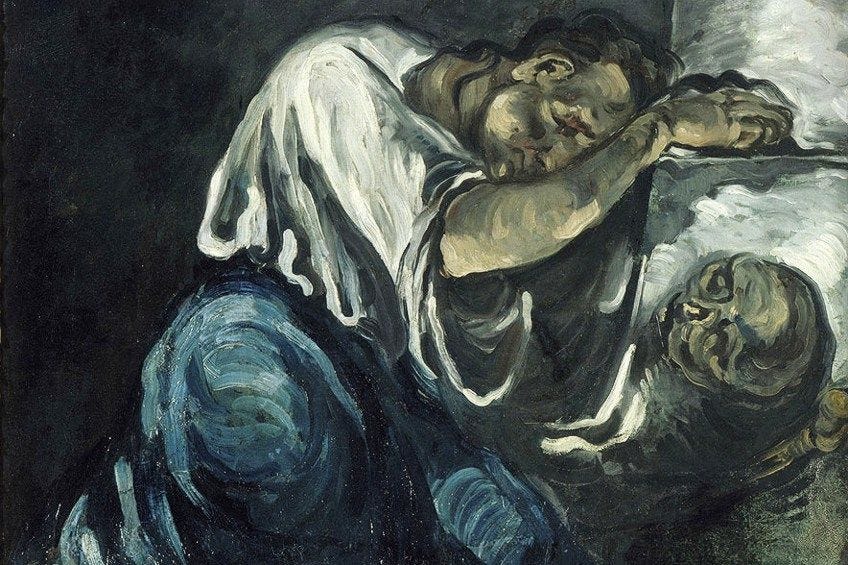This morning my aunt walked into my bedroom and asked me “Divya, do you think you might have depression? One day you’re so happy, the next day you seem so sad and tired…”
I was half-asleep and extremely groggy; I’d spent all night reading a Swedish detective novel called Dark Music by David Lagercrantz. Reading a novel cover to cover is a luxury. Like so many forms of decadence it slides easily into hedonism, as a way to run away from your existential dread. I croaked, “Of course. This is how I’ve always been,” and fell back asleep.
Depression is actually the wrong term. There’s a lovely word my friend taught me that describes my mental landscape perfectly: cyclothymia. Apparently it’s called the artist’s affliction because so many artists have it.
I think it’s foolish to put labels on yourself. What feels like a reassuring sense of identity can quickly turn into a box. I especially disapprove when identity is formed around suffering or trauma, because that seems like a great way to make it even harder to finally be happy.
Identity is not formed in isolation; you learn who you are by discovering what you can do in the world, what you’re needed for. Your sense of self comes from the people around you. Society is so fragmented that addictions to astrology and MBTI and Buzzfeed-quiz-style introspection have become common: people label themselves into oblivion in a hapless quest for a tribe.
But it’s nice to find a word that exactly describes a pattern you’ve seen or an experience you’ve had. It’s intellectually satisfying (like a puzzle piece clicking into place) and also makes you feel less alone. The very existence of the word is evidence that other people notice what you notice.
In hindsight my aunt’s question was an extremely strange thing to ask someone first thing in the morning. I think she was alarmed about me, enough to be thinking about it as she fell asleep. She’d seen me oscillate between bubbly energy and utter misery multiple times in the last three days. Years ago we heard about someone’s daughter committing suicide, and as I came down for breakfast she kissed me on the head in an uncharacteristic act of affection. It was me she was imagining spread over train tracks, not her own children, and in that moment I realized she loved me more than she misunderstood me.
She doesn’t need to worry: I’ve gotten very good over time at being consistently happy, but frankly the past few weeks have been an unusually bad time.
It’s idleness that’s been getting to me, and being in limbo. I’ve been waiting on tenterhooks for someone else to make an important decision, and in the meantime I have just enough stupid work to do that I can’t immerse myself in a project I actually care about. No human being deals well with this state of affairs but I’m peculiarly unsuited to it.
There’s a poem by Dorothy Parker that describes my gray moods very well: “There’s little in taking and giving / There’s little in water or wine / This living this living this living/ Was never a project of mine.”
I spent a whole afternoon prostrate on the couch, giving one word monotone replies to anything anyone said, my eyes clouded by unshed tears. My uncle tried telling me it would all be all right, that I was smart as a whip and would achieve everything I wanted in the end.
I’ve noticed people do this a lot; when you’re upset they assume there’s a concrete problem they can fix or make you feel less afraid of. I never know how to explain that there’s a lot of joy in fixing problems, in being full of adrenaline and desire and fear.
What’s really unbearable, the only truly unbearable thing, is when you feel like you don’t care about the outcome, like you’ll never be happy again no matter how well things turn out. To this day I don’t have a formula for recovery. It takes divine inspiration, or a happy trick of sunlight glimmering through leaves, to pull me out of it.




